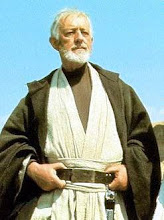In verse 23, Nephi says that he read many things unto his brethren and people out of the books of Moses. In our Bible, those books are Genesis, Exodus, Leviticus, and Numbers. I'm thinking that they were very similar. His intention was to more fully persuade them to believe in the Lord their Redeemer, so he read from Isaiah. Nephi takes it upon himself to quote extensively from the writings of Isaiah. We will see this in future chapters, starting with chapter 20. I believe that he wants us to be more fully persuaded to believe in the Lord our Redeemer. Do we have this intent in mind when we read Nephi's selections from Isaiah? He also states that it is for our profit and learning.
In verse 24, Nephi states that his people are a branch of the house of Israel and that they are broken off. Footnote 24b points us to Genesis 49:22-26 which says that Joseph is a fruitful bough by a well whose branches run over the wall. His final plea is to liken these words unto ourselves.
In the Book of Mormon Institute Manual, we are given some questions that help us liken the scriptures unto ourselves, thinking about the previous stories Nephi has shared:
What scriptural source did Nephi use to teach his brothers concerning “the Lord their Redeemer”? (1 Nephi 19:23). What prophets’ writings were found in that source? What did Nephi urge his readers to do with the scriptures he was citing? The wise reader learns from the lessons of the past. Nephi said he read the scriptures to his people and did “liken all scriptures unto us” (v. 23). How does one liken the scriptures unto himself for his “profit and learning”? (v. 23). The following questions indicate possible ways this can be done: What significance does this particular event or principle have for me today? For example, What does the rebellion of Laman and Lemuel teach me? What can I learn about faithfulness from Nephi’s obedience? If I were in this particular situation or faced with this challenge or question, how would I react? What flaws or strengths would I find in my own character? Am I like Lehi’s family in the wilderness, or am I like Nephi? Do I complain when things get difficult, or do I trust in God no matter what the circumstances? What do I learn about God and his dealings with his children from this event? Why does God put his children through the trials of the “wilderness”? Why did he send Lehi and his family to a whole new land? Why did God not just have them go to some isolated place until Jerusalem was destroyed? As I study the lives of men and women in the scriptures, what do I learn about the things that please or displease God? Why was this particular concept, principle, or event included in the scriptures?
Subscribe to:
Post Comments (Atom)

No comments:
Post a Comment